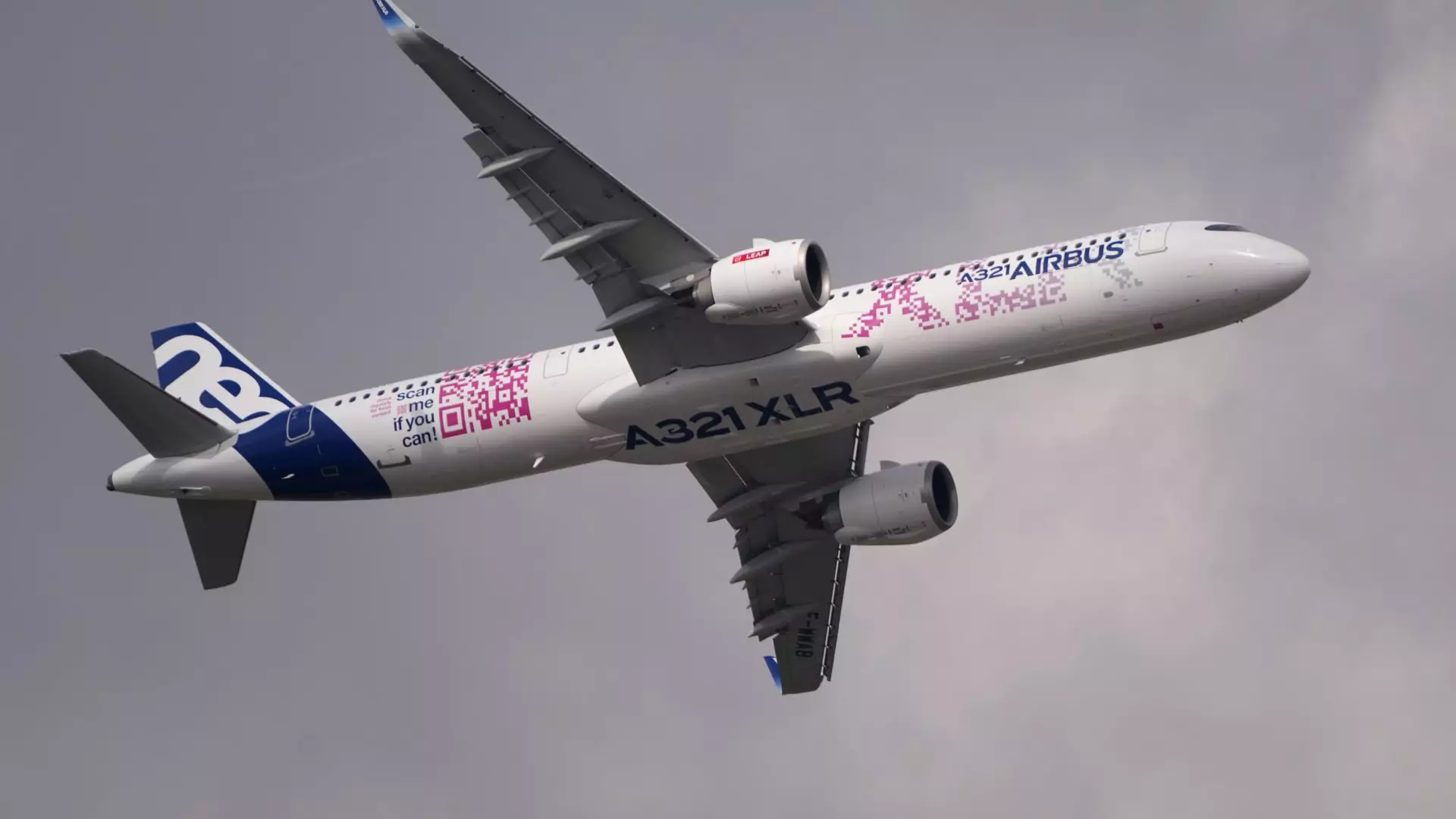In a significant milestone for the aviation industry, Airbus has officially delivered its first A321XLR, an extra-long-range narrow-body aircraft, to Iberia, Spain’s flagship airline. This delivery not only marks a notable advancement in Airbus’s product lineup but also symbolizes a shift towards smaller, more fuel-efficient jets capable of covering longer distances. As airlines seek to maximize efficiency and reduce operational costs, the A321XLR emerges as a front-runner in this new paradigm.
The A321XLR can achieve ranges of up to 4,700 nautical miles or approximately 11 hours of nonstop flight, which is an impressive 15% greater distance than its predecessor, the A321LR. This capability positions it as an ideal option for transcontinental flights, such as the anticipated route between Madrid and Boston by Iberia. The aircraft’s fuel efficiency is another crucial factor; it reportedly consumes 30% less fuel than older models, which is an attractive feature for airlines aiming to decrease their environmental footprint and fuel expenditures. Major carriers such as American Airlines and United Airlines have also secured orders for this innovative aircraft, indicating widespread industry support and confidence in its operational potential.
In delivering the A321XLR, Airbus has created a more pronounced gap between itself and its main competitor, Boeing. Following the challenges faced by Boeing in the wake of two tragic crashes involving its 737 Max, the American manufacturer has been forced to reevaluate its strategic plans. While Boeing has put on hold its ambitions to develop an entirely new aircraft designed to bridge the market gap between its 737 and larger wide-body jets, Airbus is seizing the moment. With over 500 A321XLRs on order against a backdrop of nearly 8,600 aircraft in total backlog, Airbus is capitalizing on its competitor’s struggles.
In light of Boeing’s current challenges, including workforce reduction and divestiture of non-core businesses, the company appears focused on recalibrating its strategy to enhance quality and financial health. The market dynamic is shifting, as Airbus introduces a competitive product while Boeing reevaluates its offerings. The implications for both manufacturers could be profound, potentially establishing Airbus as the preferred choice for airlines looking to modernize their fleets with advanced, efficient models.
As the A321XLR prepares to take to the skies, the aviation industry stands on the brink of transformation. With changing demands for longer-range, fuel-efficient aircraft, the ability to adapt and innovate becomes paramount for manufacturers. Airbus’s successful launch of the A321XLR not only enhances its market position but also sets a new standard for aircraft design and functionality. Airlines are likely to continue favoring models that integrate efficiency with expanded capability, and in this regard, Airbus has positioned itself advantageously. The coming years will be telling, as the industry navigates the challenges of a post-pandemic world and moves toward a more sustainable future. The stakes are high, and the race for technological advancement in aviation is more competitive than ever.


Leave a Reply